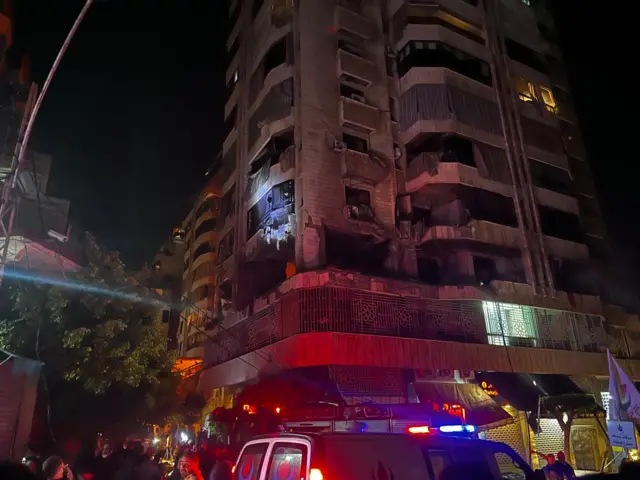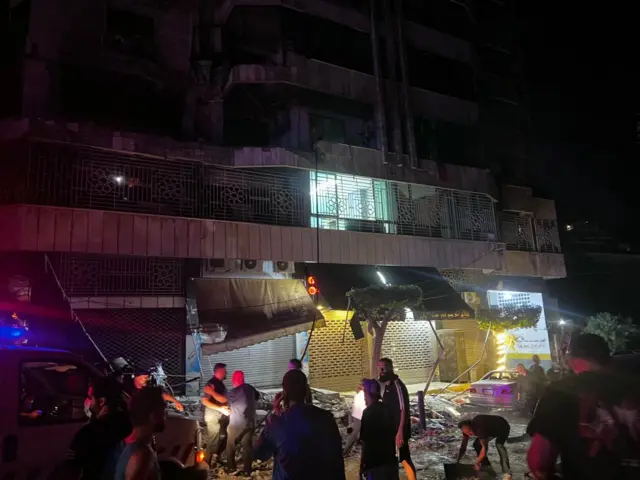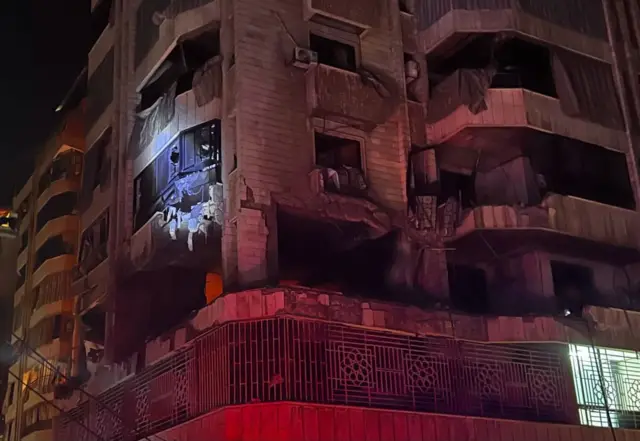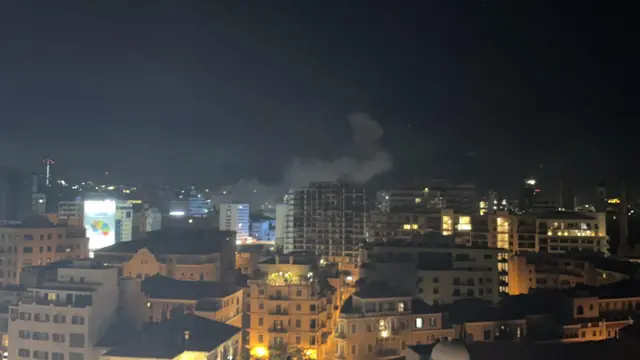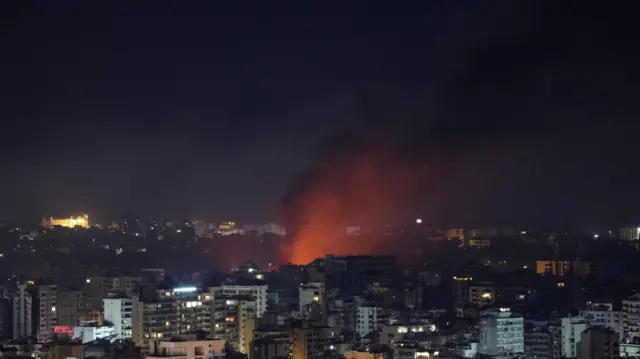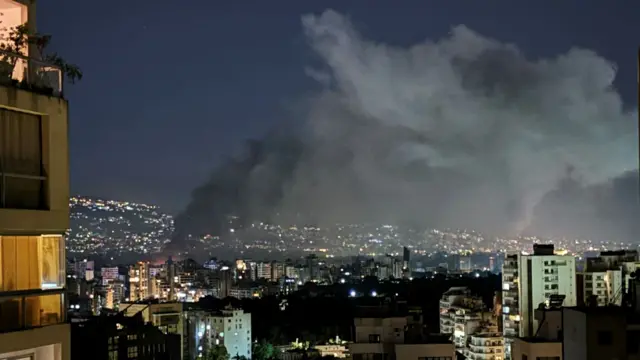Israel poised to retaliate - but what happens next?published at 01:49 BST 3 October 2024
 Frank Gardner
Frank Gardner
Security correspondent
Video shows Iran's missile attack on Israel
Israel is poised to retaliate against Iran for Tuesday’s volley of ballistic missiles, some of which penetrated Israel’s air defences.
"Iran," says Israeli PM Benjamin Netanyahu, "will pay a heavy price."
Iran says its attack was in response to two assassinations by Israel - of the Hezbollah leader Hassan Nasrallah in Beirut and of the Hamas leader Ismail Haniyeh in Tehran.
The restraint that Israel’s allies urged on it the last time there was a standoff like this in April is more muted this time.
And given Israel’s determination to take on all its enemies at once - in Lebanon, Gaza, Yemen and Syria - the Netanyahu government seems to be in no mood to hold back.
Israeli planners will likely now be debating not if and when to hit Iran, but how hard.
Aided by US satellite intelligence and by Mossad's (Israel’s overseas spy agency) human agents on the ground in Iran, the Israel Defense Forces has a wide range of targets to choose from.
These can broadly be divided into three categories; conventional military, economic and nuclear.
- We're ending our live coverage now. For more of our coverage on the Middle East, click here.
